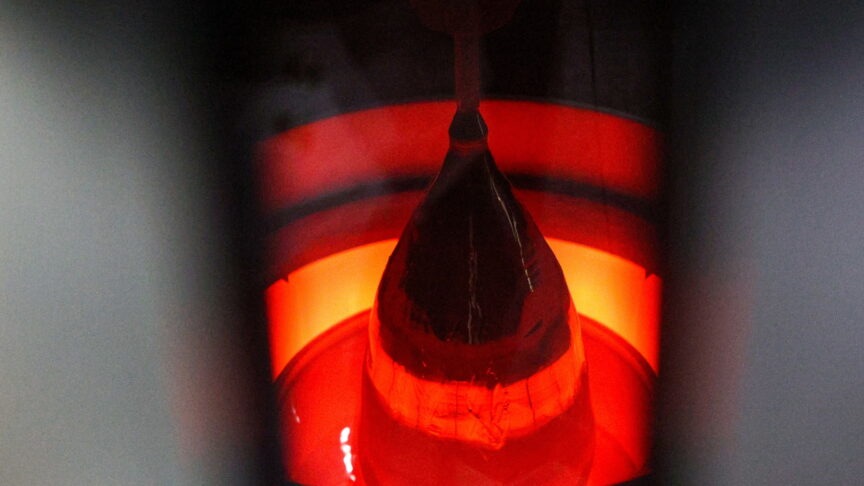Beware of mission-accomplished syndrome: Germany and European defence
It is ill-advised for Germany to be complacent on common European defence – especially at a moment when the country holds the presidency of the Council of the EU.
Europeans don’t do theatrics quite as well as Americans – which is why, luckily for her, German Chancellor Angela Merkel never stood on an aircraft carrier in front of a large banner reading “mission accomplished”. Other than in the lack of ill-fated symbolism, however, Germany’s current take on European defence bears an eerie resemblance to then-president George W Bush’s premature declaration of victory in Iraq in 2003.
To get a sense of where EU policy might go in the future and who likes working with whom, the European Council on Foreign Relations has in last few years carried out an expert survey that forms the basis of its EU Coalition Explorer. This year, 845 policymakers and experts spread across all 27 EU member states provided ECFR with a sense of their respective governments’ priorities. One thing is clear: it isn’t common European defence.
Asked which policy project will be the highest priority for their country’s government in the next five years, respondents rank common European defence structures in 14th place out of 20 areas. Defence, therefore, ranks far below fiscal issues, migration policy, and climate change, the topics that top their priority lists. Seventeen member states – more than 60 percent of the European Union – do not have defence in their top ten priorities. And only five EU countries – Cyprus, Greece, Romania, Hungary, and France – rank European defence in their top five.
As discussed elsewhere, the 2020 EU Coalition Explorer shows yet again that Germany remains the central power in the EU. It is the most contacted country within the EU, and is regarded by other member states as being the most responsive and influential nation within the union. When Germany moves, the EU has a tendency to follow – or, at least, to take notice. Given this, anyone hoping for significant progress on common European defence over the next few years is likely to be disappointed. Germany ranks defence structures in 14th place – a result even worse than that for the EU27 overall (as the country lists only 17 policy priorities rather than 20).
Despite modern Germany’s persistent rejection of most things military, this low prioritisation of EU defence structures is surprising given that the country has in recent years become an important supporter of European defence cooperation. During this period, defence issues have become an area of intense EU activity. The stars – or, perhaps, storm clouds – aligned for European defence when, in quick succession, Russia annexed Crimea, the United Kingdom decide to leave the EU, and Donald Trump was elected as president of the United States. These events served as wake-up calls for many Europeans, making cooperation between them on a notoriously divisive topic all the more urgent and – in the case of the UK’s departure – easier. In a short time, the EU reached important milestones, devising initiatives such as the European Defence Fund (EDF) and Permanent Structured Cooperation (PESCO) to build up “European strategic autonomy” or “European sovereignty”.
Germany has been highly supportive of these efforts. German policymakers like dealing with defence on the EU level, as the German public tends to see common European efforts in a more favourable light than national ones. Furthermore, when it engages in military operations, Germany is to some extent legally required to work on the EU level. Given all this, why does Germany appear to have deprioritised defence now?
One likely reason is that the EU’s defence efforts are at risk of becoming a victim of their own success – before they have had a chance to bring about meaningful change. In Berlin, a self-congratulatory mood often suffuses discussions about European defence. German policymakers apparently feel that the country has done its part on European defence. Germans, it seems, have taken celebrations of progress on EU common structures as a declaration of victory – and moved on.
While it is right to celebrate the EU’s achievements, initiatives such as PESCO and the EDF don’t miraculously create European sovereignty on defence matters just by existing … Member states still need to take action.
But while it is right to celebrate the EU’s achievements, initiatives such as PESCO and the EDF don’t miraculously create European sovereignty on defence matters just by existing. They are umbrella programmes designed to facilitate cooperation within the EU. Member states still need to take action. Recent quarrels over the size of the EDF – which, during some parts of the debate on the EU multiannual budget, looked as though it would receive no funding whatsoever – serve as a reminder that victory is far from certain. Germany, however, may be satisfied with what the EU has already achieved. Germany has always focused more on the “common” part of “common defence” than on the “defence” part. Berlin is happy to use defence cooperation as a way to strengthen EU unity but is less focused on outcomes. Therefore, it sees establishing PESCO and similar initiatives as a goal – and success – in itself. The fact that the European-minded Ursula von der Leyen left her post as German defence minister to head the European Commission may have also contributed to a loss of focus on common defence within the German government.
Unfortunately, deprioritising European defence is a particularly bad idea right now. The covid-19 crisis and the resulting economic recession have made many foreign policy challenges more acute. China has been extremely active in its mask diplomacy (and somewhat maladroit in its attempts at disinformation). Russia continues to pose a challenge. Most importantly, the Trump administration’s Europe policy is concerning and divisive. Trump’s recent announcement that he would withdraw 12,000 US troops from Germany, and relocate both European Command and Africa Command to other European countries, may be a punitive measure targeting Berlin. It certainly does nothing to “strengthen NATO”, as US Defense Secretary Mark Esper claimed.
Moreover, the covid-19 crisis is likely to lead to a decline in defence budgets across Europe. And in times of high unemployment – such as that caused by the pandemic – states tend to invest more of their defence resources in personnel rather than in shared priorities such as equipment or operations. Thus, common European defence efforts are poised to take a hit even in the best-case scenario. It is ill-advised for Germany to be complacent on this – especially at a moment when the country holds the presidency of the Council of the EU.
Yet all is not lost. Firstly, despite the trends detailed in ECFR’s survey, the German Council presidency does, in fact, acknowledge the importance of the EU’s Common Security and Defence Policy. Secondly, there is France – which has always been more interested in the “defence” part of “common defence” than focused on unity. Admittedly, this attitude has sometimes created its own problems. But, so far, it seems to have kept the country from declaring “mission accomplished”. France is the only country in Europe that ranks defence as its number-one priority.
This is good news for those who hope for greater European defence cooperation, given that France remains Germany’s closest partner. As illustrated by recent discussions on the European recovery fund, Macron’s France has demonstrated some ability to influence German actions. And, although an overall majority of EU27 countries see Germany as their most important partner, almost all respondents consider it equally important to work with France and Germany on defence issues. This suggests that France might be able to influence European thinking in this area in particular.
So, I count on France to sustain European defence efforts for some time to come – and to prevent Germany from declaring “mission accomplished” long before it is merited.
The European Council on Foreign Relations does not take collective positions. ECFR publications only represent the views of their individual authors.


